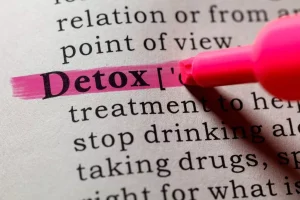
Seeking help in time can prevent you from slipping into uncontrolled active addiction. However, because of AVE, it’s very difficult to stop a relapse at this point. In other words, abstinence violation effects make a single lapse much more likely to turn into a full return to a full relapse into negative behavioral or mental health symptoms. In the context of addiction, a breach of sobriety with a single drink or use of a drug has a high likelihood of a full relapse.
- Rather than labeling oneself as a failure, weak, or a loser, recognizing the effort and progress made before the lapse can provide a more balanced perspective.
- A relapse is the result of a series of events that occur over time, according to psychologist and researcher Alan Marlatt, Ph.D.
- We remember that our urges do not control us, that we have power over our own decisions.
- Ongoing use of the substance can be caused by feelings of personal failure.
- When abstinence violation effect kicks in, the first thing we often do is criticize ourselves.
Feelings vs Emotions: The Key Differences That Shape Your Mental Well-being

The weight of this guilt often correlates to the amount of time spent in recovery leading up to the relapse. Those with only a few weeks of sobriety will not feel as bad as those with years under their belt. abstinence violation effect Not out of the same warped practicality mentioned above, but because they simply feel as if they are hopeless. Jim is a recovering alcoholic who successfully abstained from drinking for several months.
- Cognitive processes may include self-blame, rumination, and heightened self-awareness.
- More commonly, abstinence violation effect is fueled by guilt and shame.
- If the person succumbs to the urge and violates their self-imposed rule, the Abstinence Violation Effect is activated.
- These patterns can be actively identified and corrected, helping participants avoid lapses before they occur and continue their recovery from substance use disorder.
- Always seek the advice of a physician or other qualified health provider with any questions you may have regarding a medical condition.
‘This Time Will Be Different’
I have had clients that expressed after having one sip of a drink, they felt so badly and shameful for failing that this was the permission giving thought that getting drunk wouldn’t be any worse. Through shifting attention towards positive coping skills and strategies, the impact of lapse and the intensity of the AVE can be minimized. An effective approach to maintaining motivation is reframing the lapse as a setback. Setbacks are a normal part of the recovery, meaning the isolated event is not an indicator of overall failure.

Abstinence Violation Effect: How Does Relapse Impact Recovery?

Lapses are, however, a major risk factor for relapse as well as overdose and other potential social, personal, and legal consequences of drug or alcohol abuse. It’s important to establish that a one-time lapse in a person’s recovery from drugs or alcohol is not considered a full blown relapse. Mental relapse is characterized by thoughts of using drugs or alcohol again. You may be conflicted between resisting thoughts about drugs and compulsions to use them. It is possible to rationalize the fact that if you continue to use, you might not experience the same consequences as before. Always seek the advice of a physician or other qualified health provider with any questions you may have regarding a medical condition.
Sign up for text support
An individual may experience uncontrollable, stable attributions and feelings of shame and guilt after relapsing as a result of AVE. In =https://ecosoberhouse.com/ conclusion, the abstinence violation effect is a psychological effect that impacts those in recovery, as well as those who are focused on making more positive behavioral choices in their lives. Understanding the AVE is crucial for individuals in recovery and those focused on healthier lifestyle choices.
Despite the fact that relapse can be all-consuming, it does not have to be. It may be a single occurrence where someone decides to use the substance again. A single AVE instance can result in a long-term relapse for the individual. Knowing the different stages of relapse and how to avoid them is therefore crucial. As a result, it’s important that those in recovery internalize this difference and establish the proper mental and behavioral framework to avoid relapse heroin addiction and continue moving forward even if lapses occur.